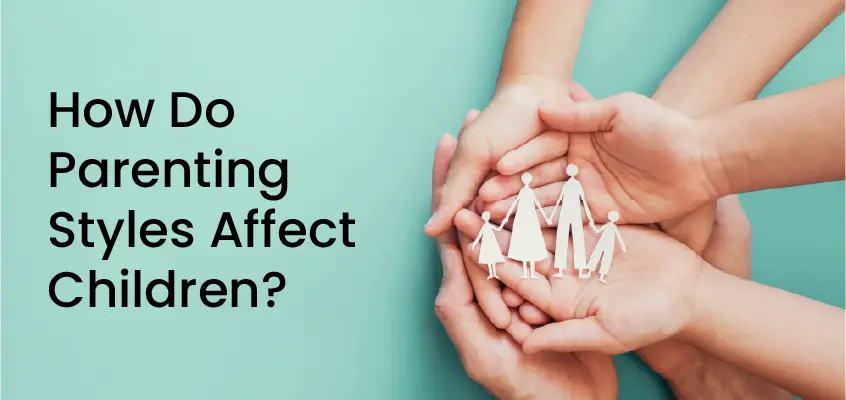Introduction
Parents are among the most influential people in the lives of Children. As children need support, sometimes parents also need support with parenting skills. Self-awareness about their parenting will help parents to form healthy relationships with their children. This blog post compares parenting styles, their impact on the development of children and the parent-child relationship and some essential tips.
Defining parenting styles
A parenting style is the characteristic approach parents tend to follow in dealing with their children. This includes how much control we as parents exert over our children, how much warmth, support, and affection we display towards them, and how responsive we are to their needs.
Just as every child is unique, every parent has their way of raising them. No single parenting style is suitable for all children, and the best approach is to find the parenting style that works best for us and our children.
How many types of parenting styles are there?
There are five major parenting styles: authoritative, authoritarian, permissive, helicopter, and uninvolved.
1. Authoritarian parenting
High expectations and strict rules characterise the authoritarian parenting style. Parents who use this approach are often rigid and unyielding. Here the parent is in complete control, and the child is not allowed to have any input. This can harm the child, making them feel powerless and anxious to please.
2. Permissive parenting
Permissive parenting is the opposite of authoritarian parenting. This style is more relaxed and laissez-faire. Parents who use this approach are more lenient with their children. However, this style can become harmful as the child can become spoiled and unruly.
3. Authoritative parenting
Authoritative parenting falls in the middle of authoritarian and permissive parenting. High expectations and clear rules characterise this style and include warmth and support. Parents who use this approach strive to achieve a balance between being firm and nurturing.
4. Uninvolved parenting
An uninvolved parenting style is characterised by low involvement and little communication. Parents who use this approach are often uninterested or unable to meet their children’s needs. Neglectful parenting is also a form of uninvolved parenting characterised by neglect. Parents who take this approach may not provide their children with basic needs such as food, shelter, or supervision.
5. Helicopter parenting
Helicopter parenting is a style characterized by overinvolvement and overprotection. Parents who use this approach are often very involved in their children’s lives and may be overly protective, and this can be harmful, making the child feel suffocated and dependent.
Tips for finding the right parenting style
It can be challenging to decide which is right for our child. There are many options, and knowing which will work best for our child can be challenging. Here are five tips to help us choose the right parenting for a child:
1. Consider the child’s personality.
The child’s personality should be a significant factor in deciding which parenting style to choose.
2. Consider the family’s lifestyle.
The family lifestyle should also be considered when choosing a parenting style. If we have a busy lifestyle with little time for one-on-one interactions with our children, then we have to spend time with our children whenever we get time. If we have a more relaxed lifestyle and plenty of time to spend with our children, we have to focus on their growth and give them some independence.
3. Consider your parenting values.
Our parenting values will also play a role in deciding which style to choose. It may be best to value independence, self-sufficiency, warmth and support. It may work better if we love close family bonds and emotional connections.
4. Consider the child’s age.
The child’s age should also be considered when choosing a parenting style.
5. Seek professional help.
If we struggle to parent effectively, we should not be afraid to seek professional help. Many resources are available to help us find our parenting. Furthermore, mental health specialists can offer guidance and support based on our child’s needs.
Impacts of parenting styles on children
The emotional state of a child is subject to the style they experience. Here’s how different parenting styles affect children:
-
Authoritarian parenting is based on expectations and rules. Hence, children brought up under this style can suffer from more emotional and behavioural problems.
Hence, children brought up under an authoritative can suffer from more emotional and behavioural problems.
-
Children brought up under a permissive style of parenting can often lead being spoilt and lack self-regulation.
-
An authoritative parenting style often results in disciplined, happy children, self-regulation, and social competence.
-
Neglectful or uninvolved parenting has a very negative effect on a child’s life. It can make them lack self-control and have self-esteem issues.
Conclusion
It’s easy to compare ourselves to other parents, but it’s important to remember that every family is different. There is no right way to parent, so don’t worry about what other people are doing. Also, parenting is not a one-time event but a continuous process that requires patience and flexibility.
It can change over time, so it’s essential to be flexible in your approach. What works for your child today may not work tomorrow, so be prepared to adjust as needed.
| [1] | “7 different parenting styles and their effects on kids – MOM news daily,” 2022. |
| [2] | T. Sanvictores and M. D. Mendez, “Types of parenting styles and effects on children,” in StatPearls [Internet], StatPearls Publishing, 2022. |
| [3] | P. Li, “4 parenting styles and their effects on the child,” Parenting For Brain, 29-Nov-2016. [Online]. Available: https://www.parentingforbrain.com/4-baumrind-parenting-styles/. [Accessed: 26-Dec-2022]. |











